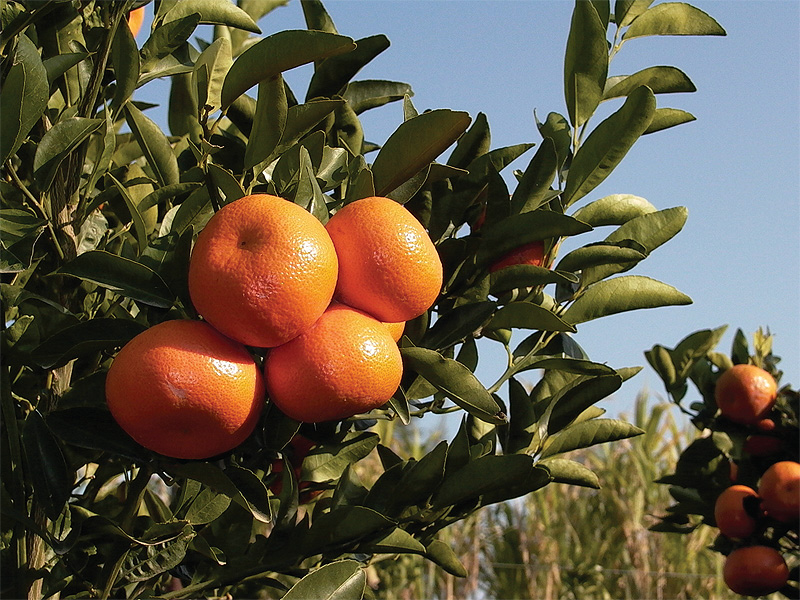
Capespan: Leading Global Supplier of Ethically Sourced Fresh Produce
Appetising prospects
With a consistent approach to both quality and ethically sound practices, Capespan is a worldrenowned supplier of fresh produce
Capespan is an international leader in delivering fresh produce to prominent fruit trading partners around the world. In producing brands such as Cape, Outspan, Goldland and Bella Nova, the company focuses on growth by evolving in line with global trends. It offers an extensive variety of produce in six categories – citrus, pome, stone, exotic, grapes and other products – and works with producers and international business partners to develop new commercial varieties. Capespan delivers 60 million cartons of product annually across six continents to business partners that include the top 30 global retailers, enabling more than 1300 producers to fulfil their global supply objectives.
“We serve three key customer segments – Tesco, other multiples and a trading division that includes our foodservice and wholesale markets,” explains trading director Martin Dunnett. “Our multiples business has grown so it now comprises over 30 per cent of our UK operation with foodservice increasing to around 20 per cent. The foodservice area is a progressing sector as companies consider provenance in terms of knowing where products grow, which means they want to work with us since we represent growers.”
Alongside Capespan Ltd, which serves the UK and Ireland, the company operates a worldwide network with branches around the globe including Fisher Capespan in the USA, Capespan Plc in Continental Europe, Capespan in the Middle East, Metspan in the Far East, Goldspan in Japan, and Capespan Group Holdings in South Africa. “We’re global because the fresh produce business is global and our key objective is to import fruit from the best locations,” says Martin. “We look at new countries and monitor potential where we have traditional links – South Africa and New Zealand are huge sources, Israel is for citrus and South America is for deciduous fruits such as grapes and apples. Local sourcing strategies instigated by retailers are increasingly requesting British production but we still have to import 90 per cent of our product, which is the case in most fresh produce environments.”
Capespan examines the bigger picture when it makes decisions that impact the environment, says Martin: “We don’t air freight produce unless it’s unavoidable because we always look for the most effective way of transporting. With oil being so expensive we have to use the cheapest method to get products here, which is why we follow an economic footprint as well as a carbon one. South Africa, where we source most of our apples, is seven times further away from the UK market than the European growing areas for apples but it’s seven times more efficient to ship fruit in a 6000-pallet vessel than it is to put fruit on a truck from Europe. There is something of a carbon footprint equalisation. Also, production cost in local countries is driven by the fact that growing conditions are not ideal so extra fertilizers or cold stores are needed and certain local treatments are ‘carbon unfriendly’. We may be sourcing from somewhere further away but the fruits are grown more naturally, which is better for the global eco-system.”
The company’s Capespan Foundation co-ordinates social investment and empowerment programmes in South Africa as part of the company’s CSR concept. “We’ve elevated the knowledge base of the farmers particularly with regards to environmental education,” says Martin. “Throughout the past 25 years we’ve run beneficial projects and five per cent of our profits go towards lifting the general wellbeing of the farm workers in South Africa. Our business is continually evolving due to demands to be environmentally and socially responsible, and we’re following our fair trade policy more actively by developing new fair trade products with farmers to ensure they reap the benefits.”
By running a comprehensive product development programme, Capespan continues to strengthen its leading position. It recently launched a wellreceived convenience fruit product: “Ourprocessed pineapple stick called Fruit Easy was introduced last year and worked very well,” reveals Martin. “We’re now looking at other fruit convenience opportunities and so, although we’re a fresh company, we’ll be working with major UK processors to develop the Cape offering. Currently, there are ideas floating around regarding citrus and using enzyme treatments to de-skin the fruit to make fruit segments marketable, since retailers are offering an expanding range of fresh fruit in small bags.”
In the future, Capespan will focus on maintaining an ethical approach and expanding the business: “We’re looking to acquire farms in South Africa to give us total control of production and we’re considering Namibia, where we’re involved in grape production,” reveals Martin. “We’re looking at getting involved in private production in future in order to control the entire supply chain. For the next five years the price, quality, supply chain and logistical factors will be at the highest possible level. Where we must differentiate and be a leader is with regards to provenance and conscientiousness. Our awareness of social issues, corporate social responsibility and ecofriendliness are major factors in our successful progression as we won’t
undermine retailer and consumer confidence by having bad practices. Fortunately, our product and the ‘green’ ethos go hand-in-hand.”